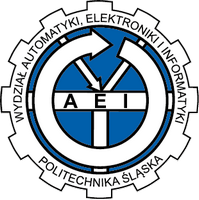Start - Study in English Informatics
Informatics
Undergraduate studies (engineer) course description:
The program in Informatics is made up of courses that give students the knowledge and skills necessary to design computer systems and applications including industrial computer systems, microprocessor and embedded systems, databases. In particular, students acquire programming skills, gain deep understanding of the internal functioning of operating systems and compilers, learn aspects of concurrent programming, principles of computer graphics and vision. Additionally, they acquire skills in construction, maintenance and usage of system software and applications development, building systems and computer networks and designing and administration of databases that are deployed in various environments and operating systems. The courses comprise lectures, tutorials, laboratories and projects, with the emphasis on the latter.
Alumni are prepared to work as software developers for standalone and web applications, databases and data warehouses, computer games and mobile applications. They can also get the position as computer engineers, network and system maintainers, project managers. With scientific background they gain during studies, they can work in R&D departments of companies and also in science.
Graduate's skills:
Graduates have knowledge in the field of developing computer systems and applications as well as the most important IT issues, such as web applications, software engineering or computer control systems.
Graduates are able to design computer systems of various configurations and to create solutions based on local, wide and industrial networks, including wireless networks. They are also prepared for administering of such systems.
Graduates of the informatics find employment in companies creating IT systems or dealing with the computerization of industrial processes, in software design houses and in service sections.
Graduates have qualifications required to work as an analyst, designer and system programmer, as well as the administrator of operating systems. Graduates also work as specialists in the field of safety of systems and computer networks. They are able to develop embedded systems and mobile applications.
Postgraduate studies (master) course description:
The program in Informatics is made up of courses that give students specialized knowledge in the field of information technology and computer science. The common obligatory courses focus on the evaluation of computer networks and systems performance, digital modeling, computer vision and pattern recognition, design, and analysis of advanced computer systems. Two elective specialization tracks include advanced knowledge and skills in the field of industrial informatics systems or the Internet of things technology. Industrial informatics systems specialization provides knowledge about real-time systems, industrial computers, and network design, software certification, control algorithms. Internet of things track includes the knowledge on IoT networks and devices, cloud computing and data analysis, software development methodologies, augmented and virtual reality systems.
Alumni are prepared to work as software developers, computer systems and network engineers. With a scientific background they gain during studies, they can work in R&D departments of companies and also in science.
Graduate's skills:
Graduates of Industrial informatics systems specialization have knowledge in the field of developing industrial computer systems, networks and applications. Graduates are able to design industrial computer systems of various configurations, computer control systems and solutions based on industrial networks, including wireless networks. They are also prepared for administering of such systems.
Graduates of the Internet of things specialization have knowledge in the field of advanced modern IoT hardware platforms, big data and cloud computing, data visualization issues and principles of data flow, storage and processing in IoT. Graduates are able to design IoT systems and networks, develop cloud computing and visualization applications.








